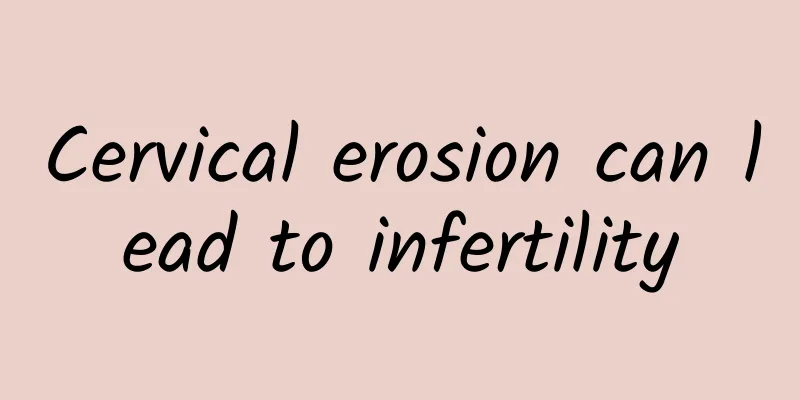Dietary regulation for women with irregular menstruation

|
Long-term irregular menstruation is extremely harmful to the body. Many women are troubled by irregular menstruation. A reasonable diet can help regulate irregular menstruation. So what should be paid attention to in the dietary regulation of irregular menstruation? Let's learn about the dietary regulation of irregular menstruation . Dietary conditioning for irregular menstruation should pay attention to the choice of staple food, such as wheat, millet, corn, purple glutinous rice, etc.; the choice of meat, eggs and milk, such as meat, pork skin, rabbit meat, chicken, beef, mutton, animal offal, fish, eggs, milk and dairy products, etc. Fruits are an important source of vitamins, sugars, water and minerals. In addition to not overeating raw and cold fruits during menstruation, you should eat more fruits such as apples, pears, bananas, oranges, watermelons, sugar cane, hawthorns, peaches, pomegranates, persimmons, and bayberries. These foods can be used to regulate menstrual disorders. Vegetables include cabbage, spinach, rapeseed, Chinese cabbage, celery, mustard greens, carrots, mushrooms, lotus roots, green garlic, tomatoes, and fresh mushrooms. Dietary adjustments for irregular menstruation should focus on being light and nutritious; ensuring high-protein food; paying attention to iron supplementation; supplementing vitamin C, which promotes blood production and is used to assist in the treatment of iron deficiency anemia. Avoid spicy and dry food, avoid greasy food. Patients with irregular menstruation are often accompanied by poor appetite or indigestion. The diet should be easy to digest, appetizing and invigorating, and avoid things that hurt the stomach; avoid cold food, cold foods include: crabs, conchs, mussels, lettuce, cucumbers, watermelons, iced cold drinks, etc.; avoid spicy and dry foods such as ginger, wine, and chili. These are the precautions for dietary conditioning for irregular menstruation. The above is an introduction to the dietary considerations for irregular menstruation. I believe everyone has already understood the dietary considerations for irregular menstruation. If you have long-term irregular menstruation, you must go to a regular professional hospital for a check-up to prevent the occurrence of other gynecological diseases. I wish you good health. For more information, please visit the special topic of irregular menstruation at http://www..com.cn/fuke/yjbt/ or consult an expert for free. The expert will then give a detailed answer based on the patient's specific situation. |
<<: How can women prevent adnexitis in their daily life?
>>: Lifestyle factors of irregular menstruation in women
Recommend
Garlic is not only antibacterial and strong, but also a great tool for weight loss! "This 1 trick" can eliminate the garlic taste in your mouth
Garlic is one of the most commonly used spices. U...
What to do if there is too much pelvic fluid
When there is too much pelvic effusion, you must ...
A brief analysis of six effective methods to relieve dysmenorrhea
Dysmenorrhea is a gynecological disease with pain...
Overview of dietary treatment for chocolate cysts
Many people do not pay attention to the existence...
Women should pay attention to the typical symptoms of vaginitis in time
Vaginitis is a very common gynecological disease....
What Chinese medicine should I take if my uterine fibroid is 6 cm? Can I get pregnant if my uterine fibroid is 6 cm?
Uterine fibroids are one of the most common benig...
Causes of recurrent bacterial vaginosis
To understand the causes of recurrent bacterial v...
What causes right adnexitis in women?
Right-sided adnexitis is usually caused by bacter...
Gene immunotherapy can treat vulvar leukoplakia
The treatment of vulvar leukoplakia requires pers...
Brief analysis on nursing care of patients with Bartholin's gland cyst
Bartholin's gland cyst is a common and freque...
The difference between cervicitis and cervical erosion
Cervicitis is a common disease among women of chi...
Drinking grapefruit green tea can greatly improve your weight loss ability? Doctor: Mother soup~ Be careful of these risks
Many people try to lose weight by eating fruits. ...
The key to autologous fat breast augmentation is to create space
The key to breast augmentation with autologous fa...
Several major causes of cervical hypertrophy
Cervical hypertrophy is mainly caused by long-ter...
Women should know what are the symptoms of uterine fibroids
In our lives, patients with uterine fibroids cont...









